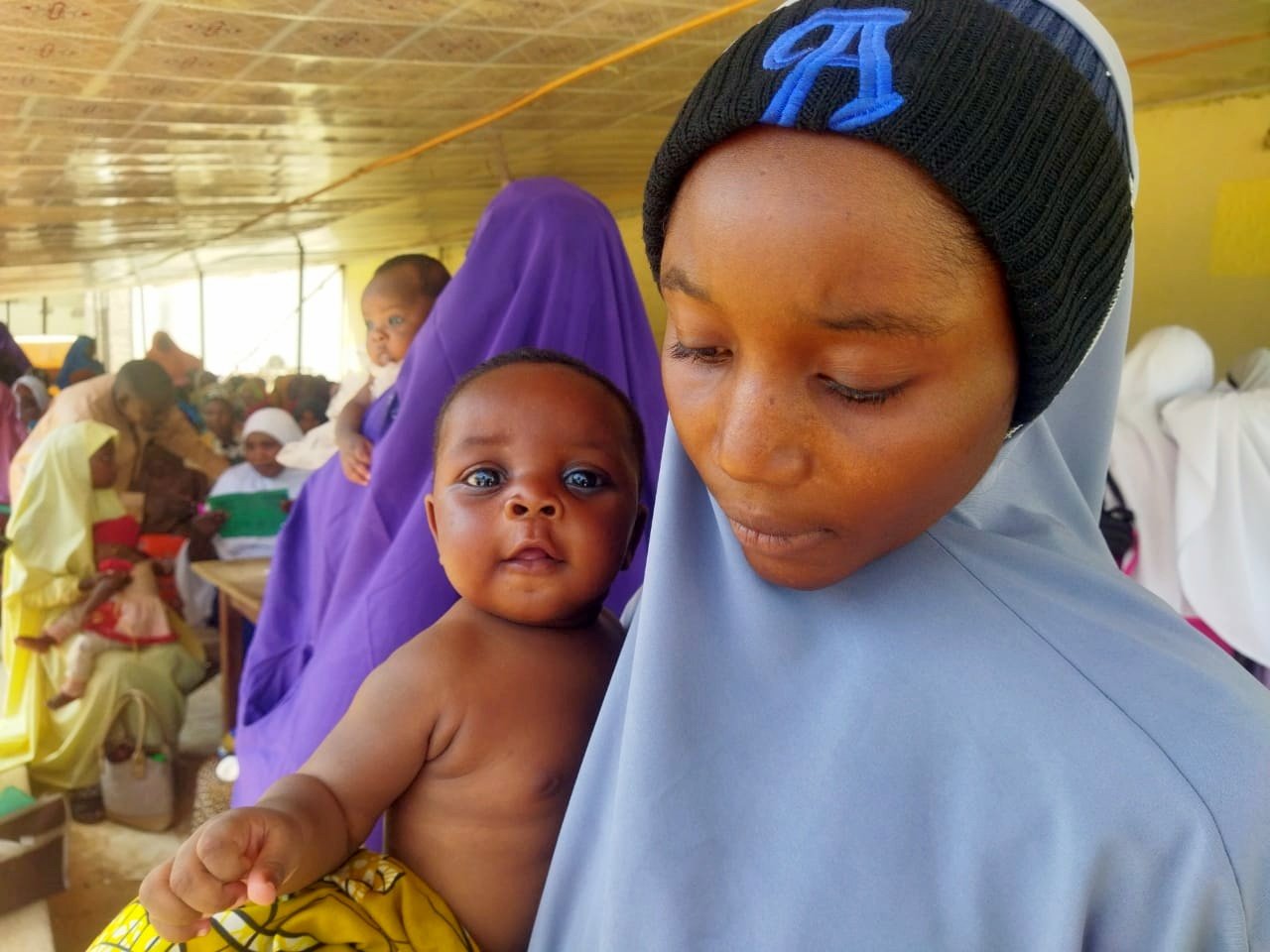(Feature story photo credit: Nigerian Tribune)
In this report, Gom Mirian takes a deep dive into Abuja’s rising flood situation, and how it is impacting its the social, economic, health and mental wellbeing of residents in Abuja.
In the midst of Abuja’s beautiful scenery and vibrant urban landscape lies a hidden crisis waiting to explode. While the world’s attention is often focused on the threat of hunger and violence that plague many regions in Africa, the capital city of Nigeria is been enveloped with a different but equally devastating adversary — incessant flooding.
With cars and houses submerged in water, commuters wading through knee-high floodwaters and homeowners left counting the cost of destroyed properties, the magnitude of this silent crisis cannot be ignored.
A Silent Catastrophe
While terrorism and other problems of insecurity often dominate the headlines, there is an insidious threat that often remains neglected – the devastating impact of floods in the Federal Capital Territory (FCT).
Abuja, renowned for its picturesque landscapes and modern infrastructure, seems to be losing the battle with torrential rains that regularly pound the flanks of the city, turning the streets into temporary rivers and leaving a trail of destruction in their wake.
For affected individuals like Chinekwu Anthony, a father of three who resides at Environmental Estate, Lugbe, the situation he found himself in July 2023, was particularly devastating.
Lugbe is just a stone throw away from the city centre where the State House, National Assembly and high brow residential areas are located.
“I came back from work on that fateful day only to find my house submerged in water. Everything was destroyed; my furniture, electronics, clothes, everything. My family and I had to seek shelter elsewhere, and it has been a really trying time for us,” he
said.

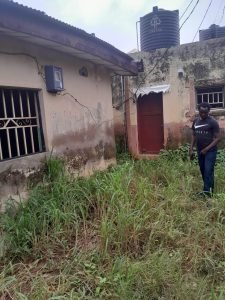
“Never did I imagine that I would wake up one day to see my house submerged in water,” laments Ozioma Anih, a resident of Abuja’s flood-troubled Lokogoma neighborhood. “People talk about terrorism, but these floods have brought us untold suffering. It’s a disaster that’s slowly drowning the soul of our beloved city.”

Another victim of flooding, Queen Esther Okeoma, a small business owner at Trademore Estate, Lugbe, lost all her goods and equipment when her shop was completely taken over by the flood in 2023.
In an emotion laden voice, she said, “I have been working hard to sustain my business for years, but the flood destroyed everything. I am left with nothing, and it’s really painful.”
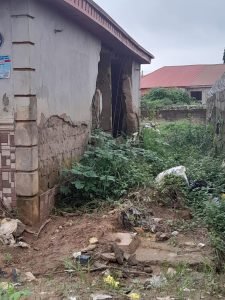
“This is the second time I’ve encountered floods. The first time, it occurred when we were asleep at night and many lives were lost as a result. However, this year’s flood was the worst. Even though we were awake, we were unable to stop it. My 85-year-old grandma screamed that she would perish as the water was everywhere till it pulled down a portion of the building,” Ms. Okeoma added.

Management authorities at Trademore Estate contacted for comment on current efforts with the government to secure a long-lasting fix for the recurring flood declined to comment, saying the the two parties are in court.
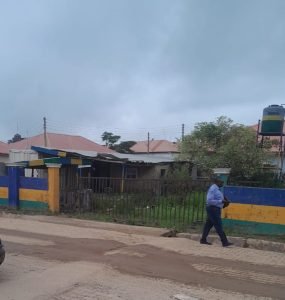
Amidst Desolation, Resilience Spurs People to Keep Moving
As buildings crumble and dreams are shattered, the strength and resilience of Abuja’s residents hold strong. However, experts believe that proactive measures are crucial in alleviating the suffering and minimising the devastation caused by recurring floods.
According to Kingsley Omobhude, a senior hydrologist at Ambrose Alli University, Ekpoma, Edo State, “Abuja’s topography and inadequate drainage systems play a significant role in exacerbating the flooding.”
“We must invest in comprehensive flood prevention and management strategies, including better infrastructure and early warning systems, to protect the lives and properties of its residents,” he stressed.

Across the Federation, Same Cries Resonate
Abuja serves as a microcosm of the flooding challenges faced by many states across Nigeria. From Lagos and Port Harcourt in the south to Kogi and Benue in the central regions, floods strike in both urban cities and remote rural areas, affecting millions each year. The 36 states of the Federation and the FCT were badly hit by the 2022 flooding described by the Director-General (DG) of National Emergency Management Agency (NEMA), Mustapha Habib Ahmed, as the worst in the history of Nigeria.
NEMA
“Abuja’s flooding problem is not unique. What we see here is a reflection of a national crisis,” states Dr. Isah Muhamood, a disaster management expert. “These floods have profound implications for food security, public health, and economic stability. It’s high time we addressed them with the urgency they deserve.”

Economic Implications on the populace
Flooding has become a constant menace in Nigeria, wreaking havoc on infrastructure, agriculture, and the overall economy. Each year, floods destroy vital transportation networks, including roads and bridges, resulting in significant disruptions to trade and commerce. This hampers economic growth, exacerbates poverty, and inhibits the country’s ability to attract foreign investment, an experience of the recent flooding experienced in Kogi State of Nigeria.
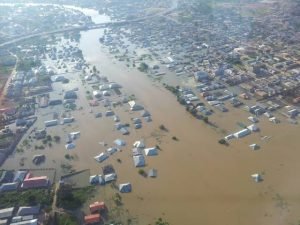
Also, the cost of reconstruction and rehabilitation following floods drains financial resources that could otherwise be allocated toward other development projects.
Impact on Food Insecurity
Flooding jeopardises Nigeria’s already fragile food security, impacting the nation’s ability to sustain itself and exacerbating the reliance on food imports. As floods ravage farmlands and destroy crops, agricultural productivity plunges, resulting in reduced food availability and skyrocketing prices. Subsistence farmers, who comprise a significant portion of Nigeria’s population, bear the brunt of these effects, unable to recover their losses and pushed into deeper poverty.
Food shortages and skyrocketing prices subsequently worsen malnutrition rates, particularly among children, further entrenching the cycle of poverty within affected regions. This is true of Kebbi State, which is known for its mass production of rice but was badly hit by the devastating flood that no one envisaged would cause massive destruction of farmlands, roads, and bridges, as well as resulting in the loss of lives last year.
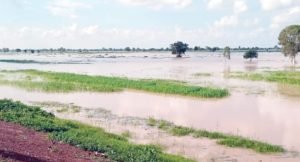
It was further reported that no fewer than 100,000 rice farmers in the state are in dire need of assistance to mitigate the effects of the destruction of their farms the devastating flood had swept away leaving them in tears.
Implications on Public Health
While terrorism often dominates headlines, the health implications of flooding cannot be understated. Floodwaters create ideal breeding grounds for disease-carrying mosquitoes, leading to an increase in malaria cases across affected regions.
Additionally, inadequate sanitation infrastructure and contaminated water sources heighten the risk of waterborne diseases such as cholera, typhoid fever, and dysentery. These diseases pose a severe threat to vulnerable populations, particularly children, pregnant women, and the elderly, exacerbating Nigeria’s already burdened healthcare system, a report of a research by Pan African Medical Journal revealed.
Time for Action
As Abuja grapples with its recurring floods, it is clear that mere acknowledgment of the issue is not enough. Government intervention, empathetic leadership, and community involvement are vital components for combating this menacing adversary.
“It’s time for a holistic approach encompassing preventive measures, sustainable urban planning, and coordinated disaster response,” emphasises Dr. Abbas Garba Idriss, the Director General, Federal Capital Territory Emergency Management Agency.
“Therefore, the only sustainable development in Nigeria is a 2-way traffic. The government has to do more of proper planning and sensitisation of the public. And ensure full enforcement of all laws relating to the environment. While the government is doing that, the citizens must have attitudinal change for a safe environment. Avoid indiscriminate waste disposal and wreckless buildings on the waterways, flood plains, and green areas.”
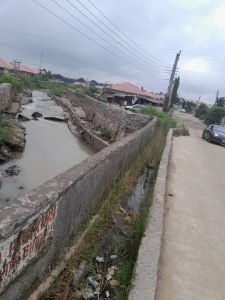
The devastating floods plaguing Abuja have brought untold hardship to its residents, echoing the tragedy that grips many states across Nigeria. Despite being overshadowed by more seemingly immediate crises, the importance of addressing this silent catastrophe cannot be understated.


